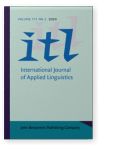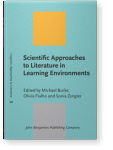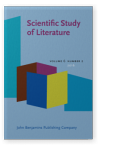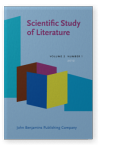Tanja Janssen
List of John Benjamins publications for which Tanja Janssen plays a role.
2020 Effects of rhetorical text analysis on idea generation and text quality ITL - International Journal of Applied Linguistics 171:2, pp. 280–306 | Article
Producing a meaningful written discourse in a foreign language requires a high cognitive effort of EFL learners. They face challenges caused by L2 word or grammar-related difficulties, and also by the L2 genre and genre conventions that may be quite different from what they experienced in their… read more
2016 Chapter 10. Effects of creative writing on adolescent students’ literary response Scientific Approaches to Literature in Learning Environments, Burke, Michael, Olivia Fialho and Sonia Zyngier (eds.), pp. 193–212 | Article
This chapter examines whether creative writing prior to reading influences students’ reading process and appreciation of short stories. Participants were 53 fifteen year old students, assigned to two conditions. In the writing condition students composed their own stories, and then read the… read more
2016 Literary reading and critical thinking: Measuring students’ critical literary understanding in secondary education Scientific Study of Literature 6:2, pp. 243–277 | Article
Previous research suggests that literary reading may involve critical thinking. This involvement may facilitate critical literary understanding (CLU), i.e. understanding the literary text in a reconstructive, de-automatized manner. However, little is known about the cognitive processes this… read more
2012 Flexibility in reading literature: Differences between good and poor adolescent readers Scientific Study of Literature 2:1, pp. 83–107 | Article
Previous research has shown that adolescent readers differ in their ‘online’ processing of literary texts. Differences were found in the extent to which these readers performed certain (meta)cognitive and affective activities while reading literary texts. However, readers might also differ in… read more



